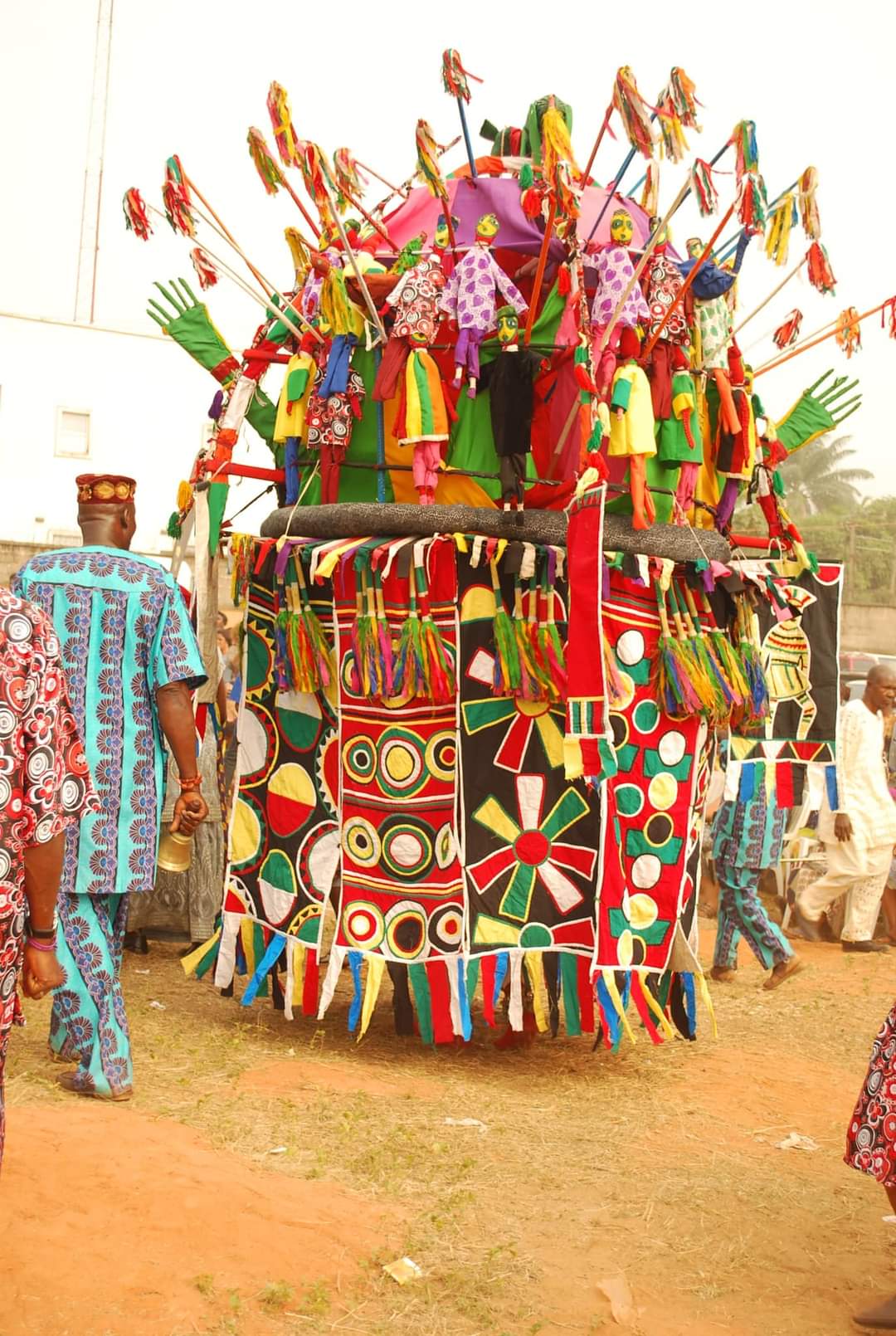Ijele Masquerade And The Analogy Of Life
ULUNNA ULUNNA

Watching Ijele masquerade perform offers a profound analogy that reflects the different groups of people we encounter in our lives. Reflecting on my past experiences, such as attending the Aro Ndi Izuogu festival years back when I was little and reflecting on it now, I can see the same dynamics at play. When we observe a masquerade’s performance, the roles of those around him vividly mirror the roles people assume in our own life’s journey. By using the Ijele masquerade performance as a guide, we can identify four distinct groups of people who influence and shape our path.
(1) The Inner Circle: Guides and Protectors
The first group consists of those who guide the masquerade and direct him through the crowd. They ensure that he doesn’t stray or lose his way, and they are there to protect him. In our lives, this group represents our closest family members—our spouses, children, parents, and sometimes very close friends. These individuals are our primary support system, our biggest shareholders, so to speak. Just as the masquerade relies on his guides to move forward, we rely on our family to help us navigate life’s journey. They are there during the highs and lows, offering guidance, love, and protection. It’s crucial that we check in with them regularly, maintain strong connections, and appreciate the role they play in our lives, because they are invested in our well-being more than anyone else.
(2) The Opportunistic Friends: Helpers and Hidden Takers
The second group consists of those who pick up the money thrown at the masquerade as he dances. Some of these helpers pick up the money and give it directly to the masquerade, ensuring he receives the reward for his performance. However, others in this group secretly pocket some of the money for themselves, hiding their true intentions. This group represents our circle of friends and acquaintances. Among them, there are friends who are loyal and supportive, always willing to help us when we succeed, and sharing in our joy. But at the same time, there are others who may pretend to support us but are only interested in what they can gain from our success. They take advantage of us when we’re doing well, but may not be around when things go wrong. These individuals are like the ones who hide the money—self-serving and opportunistic. It’s important to recognize this group, to appreciate the true friends who stand by us, while being cautious of those whose loyalty is questionable.

(3) The Spectators: Cheerleaders and Silent Critics
The third group consists of the spectators who watch the masquerade’s performance from the sidelines. Among them are those who cheer him on, clap, and throw money in admiration of his dance. These people are there to enjoy the performance and celebrate the masquerade’s skill. In our lives, they represent the people who may not be closely connected to us but genuinely wish for our success. They are the well-wishers, followers, and fans who support us from a distance—whether in our social circles or on social media. Their encouragement and positive energy are valuable, even if we don’t know them personally.
However, within this same group are those who silently observe, waiting for the masquerade to make a mistake. They aren’t there to support him—they’re waiting for him to fall, eager to spread the news of his failure. These individuals represent the silent critics in our lives. They don’t say much, and they don’t engage with us openly, but they’re quick to amplify our failures when we stumble. They may not celebrate our success, but they are the first to broadcast our mistakes. In today’s world, they might be the ones who follow us on social media, not to support, but to monitor for any sign of failure.
(4) The Detractors: The Fall Watchers
I call it (NDI OBI AKPO). The last group, often referred to as “NDI OBI AKPO” during the festival, consists of those who come with one purpose: to watch the masquerade fall. They aren’t interested in his performance, skill, or success. They are solely there to witness a failure, and they are ready to spread the word if he trips or stumbles. These individuals mirror the people in our lives who are invested in our downfall. They may watch us closely, not out of support, but out of a desire to see us fail. They will amplify any mistake, criticize when things go wrong, and often rejoice in our struggles. These are the people who lurk in the background, waiting for the opportunity to capitalize on our missteps.
The masquerade’s journey through the festival provides a symbolic representation of our life’s journey. Just as the masquerade encounters different groups of people—those who guide, support, exploit, or wait for failure—we, too, interact with various types of people. The key is to recognize these groups, appreciate those who genuinely support us, be cautious of those who are opportunistic, and remain aware of the detractors who may wish us harm. Understanding these dynamics allows us to navigate life more effectively, ensuring we invest in the right relationships and protect ourselves from those who do not have our best interests at heart.
https://www.facebook.com/DrUcheNworah









